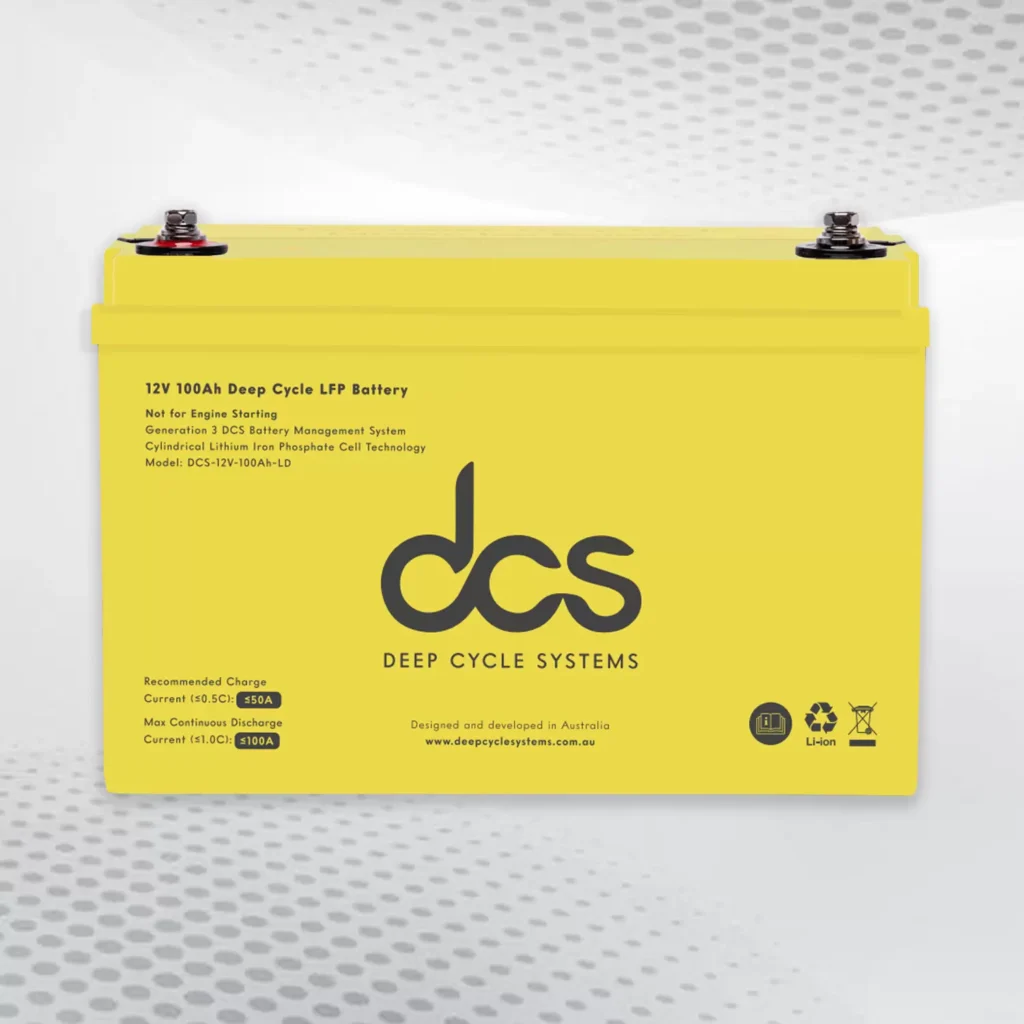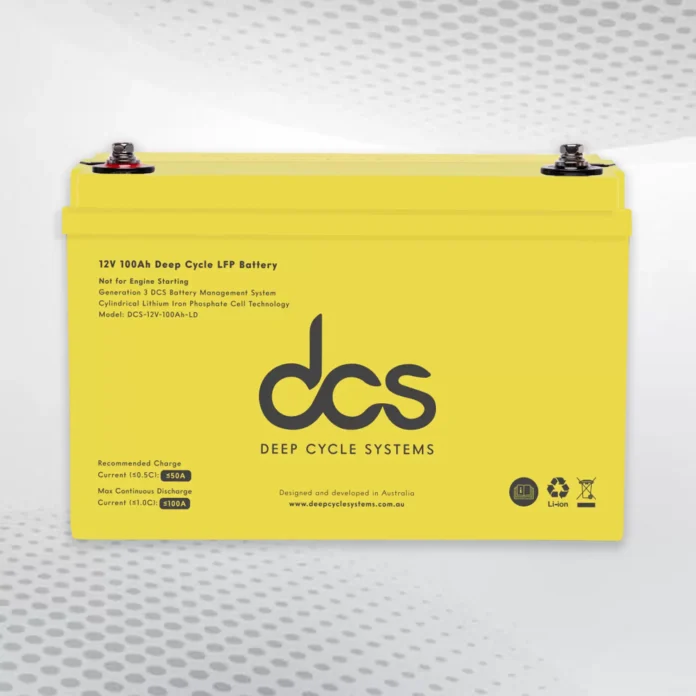In a world increasingly powered by portable and renewable energy, the 12 V Lithium Ion Batteries is a pivotal advancement, promising to revolutionize everything from daily consumer electronics to the automotive industry and beyond. With its remarkable efficiency, durability, and versatility, this technological breakthrough is not just about powering devices; it’s about powering the future. As we delve into the specifics of the 12V lithium-ion battery, we uncover a story of innovation and potential that could very well shape the next era of energy use.
A Glimpse into the Evolution of Battery Technology
The journey of battery technology has been marked by continuous innovation and breakthroughs, transforming the way we use and store energy. Initially, lead-acid batteries set the stage, offering the first practical means of storing electrical energy at scale. This was followed by the emergence of nickel-cadmium (NiCd) batteries, which provided improved energy density and rechargeability, albeit with notable environmental drawbacks. The development of nickel-metal hydride (NiMH) batteries further advanced the field, offering a less toxic alternative with enhanced energy storage capabilities. The real game-changer came with the advent of lithium-ion technology. Pioneering a leap in energy density, rechargeability, and longevity, lithium-ion batteries opened new horizons for portable electronic devices, electric vehicles, and renewable energy storage solutions. This evolution from lead-acid to lithium-ion exemplifies the relentless pursuit of more efficient, sustainable, and powerful energy storage solutions, laying the groundwork for the current era of energy innovation.
Understanding the Basics of 12V Lithium-Ion Batteries
The fundamental mechanism that powers 12V lithium-ion batteries lies in the movement of lithium ions between a cathode and an anode within the battery cell. This movement generates electrical energy in a highly efficient manner, and the process is reversible, allowing these batteries to be recharged multiple times with minimal degradation. The designation “12V” refers to the voltage they provide, which is suitable for a broad spectrum of applications, ranging from powering small handheld devices to serving as energy sources in automotive and industrial settings. The architecture of these batteries incorporates lightweight materials and compact design, contributing to their high energy density. This intrinsic property enables them to store substantial amounts of energy relative to their size, making them particularly advantageous for applications where space and weight are critical considerations. Lithium-ion batteries are distinguished by their capability to maintain a steady voltage output until depletion, supporting consistent device performance across a wide variety of uses.
The Efficiency Edge: Why 12V Lithium-Ion Outperforms
The unparalleled efficiency of 12V lithium-ion batteries is a result of their superior energy density, allowing them to store a significant amount of energy in a relatively small package. This capability ensures that devices powered by these batteries benefit from longer operating times without the need for frequent recharges. Furthermore, these batteries exhibit a remarkably low self-discharge rate when compared to alternatives like NiCd and NiMH batteries, ensuring that they retain their charge for extended periods when not in use. Such efficiency not only enhances user convenience but also contributes to the overall energy conservation by reducing the need for constant power replenishment. This aspect is particularly advantageous in applications where long-term energy reliability is critical, underscoring the unique benefits that 12V lithium-ion batteries offer in powering a broad array of devices and systems with greater energy efficiency.
Durability and Longevity: The Long-Term Advantages
12V lithium-ion batteries exhibit exceptional robustness, allowing them to withstand hundreds to thousands of recharge cycles with minimal capacity degradation. This remarkable endurance stems from advanced battery chemistry and design, which not only enhances their reliability over extended periods but also ensures consistent performance across a wide range of environmental conditions. The advancement in electrode materials and electrolyte formulations has significantly reduced the wear and tear associated with charging and discharging, thus prolonging the battery’s useful life. Additionally, improvements in battery management systems have played a crucial role in optimizing charging processes and preventing overcharging, further extending the lifespan of these batteries. Such durability is crucial in applications where reliability and minimal maintenance are paramount, underscoring the long-term value 12V lithium-ion batteries bring to both consumer and industrial applications. Their ability to maintain efficiency and capacity over time reduces the need for frequent replacements, contributing to cost savings and reduced environmental impact.
 Applications and Impacts Across Industries
Applications and Impacts Across Industries
12V lithium-ion batteries have become a cornerstone in the seamless operation of numerous industry sectors, enabling a leap towards more efficient and sustainable practices. In the realm of consumer electronics, these batteries are the silent powerhouses behind portable devices, empowering users with extended usability and reliability. Transitioning to the automotive sector, 12V lithium-ion batteries are driving the electric vehicle (EV) revolution forward, offering the requisite energy density and longevity needed for longer travel ranges without frequent charging interruptions. Moreover, their adaptability has made them invaluable in the renewable energy sector, where they are integral in the storage and distribution of solar and wind energy, facilitating a more robust integration of renewable sources into the grid. This wide-ranging applicability underscores their pivotal role in not just enhancing the performance and efficiency of products and systems but also in advancing global efforts toward a more sustainable and energy-efficient future. Their impact is felt across the board, from elevating the user experience in personal devices to enabling large-scale shifts towards cleaner transportation and energy solutions.
Lipo Battery 12v
Lipo Battery 12v, a unique member of the 12V lithium-ion family, bring distinct benefits to the table, particularly in fields where the balance between power, weight, and form factor is crucial. These batteries distinguish themselves by their customizable shapes and lighter weight compared to traditional lithium-ion counterparts, offering unparalleled flexibility in design. This adaptability is especially beneficial in cutting-edge applications such as drones and wearable technologies, where conventional battery shapes and weights could limit innovation. LiPo batteries leverage the high energy density inherent to lithium-ion technology but take it a step further by allowing for sleeker, more aerodynamic designs in devices that require lightweight energy solutions without compromising on power. Their contribution to the advancement of technology in sectors that demand both portability and performance highlights the ongoing evolution and specialization within the broader spectrum of battery technology, opening new avenues for both product development and application-specific energy solutions.
The Environmental Equation: Balancing Benefits and Concerns
While the advent of 12V lithium-ion batteries heralds a new era of energy efficiency and performance, it is imperative to acknowledge the environmental challenges associated with their production and disposal. The extraction of lithium and other essential metals necessitates mining operations that can have significant ecological and social ramifications, including habitat disruption and water pollution. Moreover, the manufacturing process itself is energy-intensive, contributing to carbon emissions. On the disposal front, if not properly recycled, these batteries pose a risk of contaminating landfills with toxic substances. It is crucial, therefore, for ongoing research and development to focus on minimizing these environmental impacts through more sustainable mining practices, improving energy efficiency in manufacturing, and enhancing battery recycling methods. These efforts are essential in ensuring that the benefits of 12V lithium-ion batteries do not come at the expense of the planet’s health, aiming for a holistic approach that balances technological advancement with environmental stewardship.
For consumers and businesses alike, the transition to 12V lithium-ion batteries represents a forward-thinking move towards embracing more efficient, reliable, and sustainable energy solutions. While the upfront investment might seem daunting for some, the long-term benefits—ranging from cost savings due to less frequent replacements to performance enhancements in various applications—make it a worthwhile consideration. As we stand on the brink of this new era in battery technology, it’s clear that the impact of these small but mighty power sources will be profound and far-reaching.
How Consumers and Businesses Can Adopt 12V Lithium-Ion Batteries?
For consumers, integrating 12V lithium-ion batteries into daily life begins with choosing electronics and devices that are designed with these power cells. Opting for these devices not only ensures longer use between charges but also supports environmental sustainability through reduced waste. When purchasing battery-powered tools, gadgets, or vehicles, consumers should look for products labeled with lithium-ion technology, which signals longer-lasting energy and efficiency.
Businesses, on the other hand, can adopt 12V lithium-ion batteries by investing in technologies that enhance product performance and sustainability. Companies in the automotive industry can incorporate these batteries into electric vehicles (EVs) to improve range and reliability. Similarly, those in the energy sector might use them for more efficient storage solutions, harnessing renewable sources more effectively. By prioritizing lithium-ion technology in product development and operations, businesses not only contribute to a greener planet but also to a more energy-efficient economy.
Adoption strategies for both consumers and businesses include staying informed about the latest advancements in lithium-ion battery technology and considering the long-term benefits—both economic and environmental—of making the switch. Engaging in recycling programs and advocating for research into more sustainable production methods are also key steps in this transition.
FAQs
1. How do manufacturers ensure the safety of 12V lithium-ion batteries?
Manufacturers incorporate various safety mechanisms, including thermal management systems, to mitigate risks such as overheating and to ensure safe operation under normal and extreme conditions.
2. What is the expected lifespan of a 12V lithium-ion battery, and what factors influence it?
A typical 12V lithium-ion battery can last from 3 to 5 years, depending on usage patterns, with factors like the number of charge cycles, operating temperature, and adherence to recommended charging practices playing crucial roles in its longevity.
3. Is the recycling process for 12V lithium-ion batteries accessible, and how does it work?
Recycling for these batteries is indeed possible but involves a sophisticated process that breaks down the battery to recover valuable materials.
Conclusion
In conclusion, the advent of 12V lithium-ion battery technology signifies more than just an incremental improvement in portable power sources; it heralds a new age of innovation and sustainability in energy storage. As we continue to navigate the challenges and opportunities presented by this technology, its role in driving progress across multiple facets of our lives and industries cannot be underestimated. The story of small cells instigating big changes is far from over; indeed, it’s just beginning to unfold, promising a future where our energy needs are met with greater efficiency, reliability, and environmental consciousness. The implications are vast, and the potential is limitless, as we continue to explore and expand the horizons of what these powerful little batteries can do.
| Other Good Articles to Read |
| Niche Blogs Connect |
| Blogs 97 |
| Blog Stitution |
| Blogs Unplugged |
| Blogs Cotch Rouge |
| Blog Signatr |
| Blog Sintonias |
| Blog Zilla |
| Consumer Forums |
| Finance Forums |
| G Blogs |
| Too Blog |
